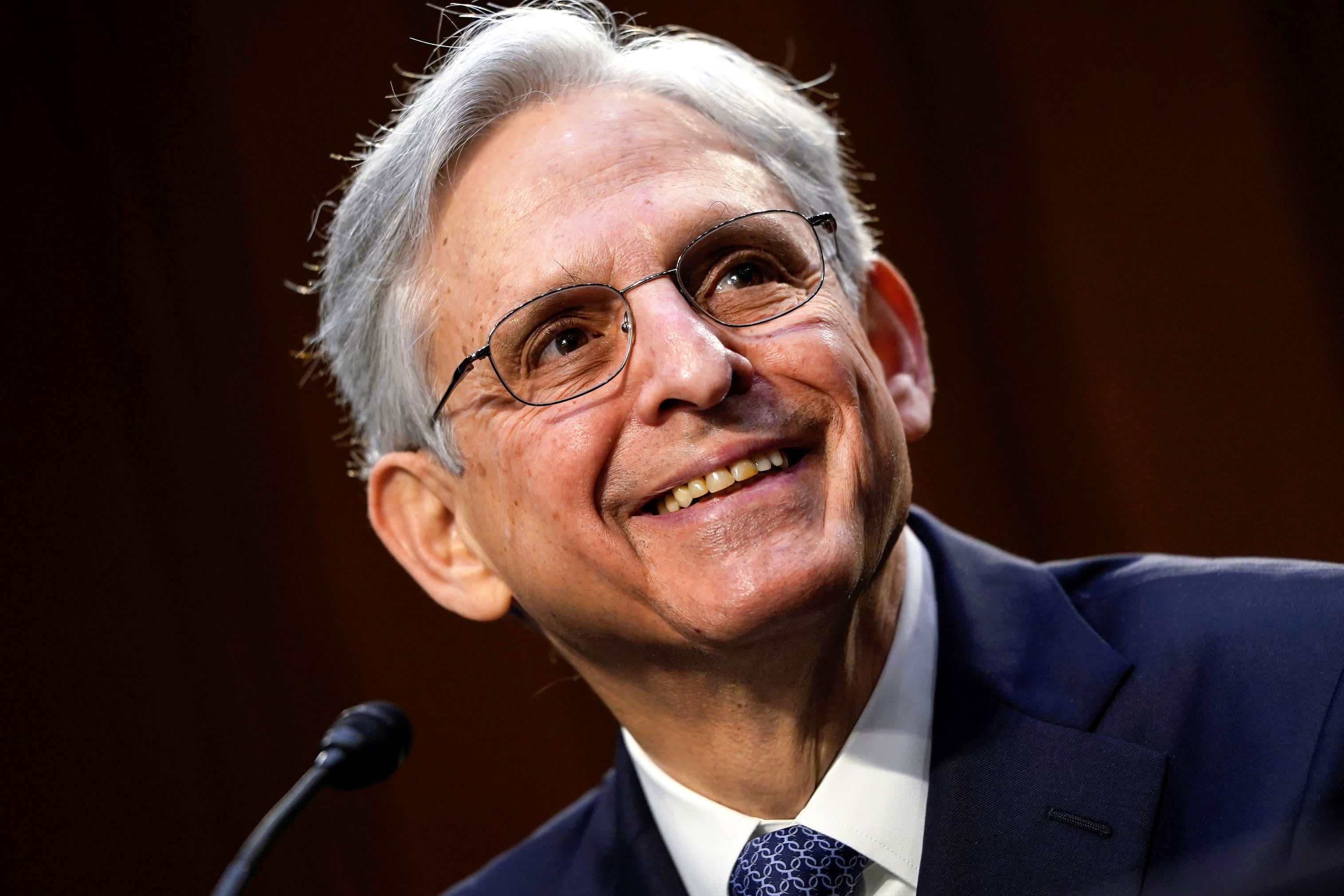
Attorney General nominee Merrick Garland testifies during his confirmation hearing before the Senate Judiciary Committee, Washington, DC, February 22, 2021.
Drew Angerer | Pool | Reuters
The Judiciary Committee on Monday advanced federal appeals court Judge Merrick Garland’s nomination to be attorney general to the full Senate, paving the way for his confirmation to head the Department of Justice.
The bipartisan vote was 15-7. A full Senate vote has not been scheduled but could come early this week.
Garland’s hearings before the committee last week focused on the sprawling investigation into the Jan. 6 riot at the U.S. Capitol. The largely cordial question-and-answer session indicated that the centrist former Supreme Court nominee was likely to be approved on a bipartisan basis.
The nominee is expected to be crucial to accomplishing President Joe Biden‘s agenda on a number of fronts, particularly with regard to civil rights and criminal justice reform, but also on antitrust enforcement, climate change progress, financial regulation and other areas.
The attorney general is seventh in line of presidential succession, after the Defense secretary.
Garland is known to the public largely as the face of Senate Republicans’ successful bid to stonewall former President Barack Obama’s effort to replace Justice Antonin Scalia on the nation’s highest court.
In 2016, Obama nominated Garland, a longtime judge on the D.C. Circuit Court of Appeals, to fill the vacancy, but Garland never received a hearing for the role in the GOP-dominated chamber of Congress. Republicans kept the seat open until President Donald Trump nominated Neil Gorsuch in 2017.
At his hearings last week, Garland pledged to remain independent from Biden when it comes to the Justice Department’s investigations and prosecutions. Garland said he had not spoken to the president about an investigation into Biden’s son, Hunter Biden, related to the younger man’s tax affairs.
Garland also spoke about his role overseeing the prosecutions that stemmed from the 1995 Oklahoma City far-right terrorist bombing, saying he would draw from the experience as he oversaw the investigations into the riot in Congress. Garland said the probe into the attack would be his No. 1 priority.
“We begin with the people on the ground and we work our way up to those who were involved and further involved,” Garland told senators.
The hearings foreshadowed what could be more difficult processes for other Justice Department nominees.
Sen. Mike Lee, R-Ariz., targeted Kristen Clarke, who has been nominated to lead the Justice Department’s civil rights division, and Vanita Gupta, who Biden picked to hold the No. 3 spot in the department as associate attorney general.
Clarke and Gupta have both been the subject of attack from conservative groups.
Clarke is under fire for a letter she co-wrote that was published in The Harvard Crimson in 1994 in which she said that Black people were in some ways physically superior to white people. She has since said the comments were designed to show the absurdity of racist views against Black people. Clarke is the former president of the Lawyers’ Committee for Civil Rights Under Law.
Gupta has been targeted by the conservative Judicial Crisis Network, which has accused Gupta, without evidence, of wanting to defund the police. Those arguments were largely defanged, however, after major policing groups, including the Fraternal Order of Police, came out in support of the civil rights leader last month.
“Vanita Gupta has always worked with us to find common ground even when that seemed impossible,” the national FOP, which twice endorsed former President Donald Trump, said in a statement.
Garland defended both women at his own hearing, telling Lee that “I have complete faith in them.”
Subscribe to CNBC Pro for the TV livestream, deep insights and analysis on how to invest during the next presidential term.




